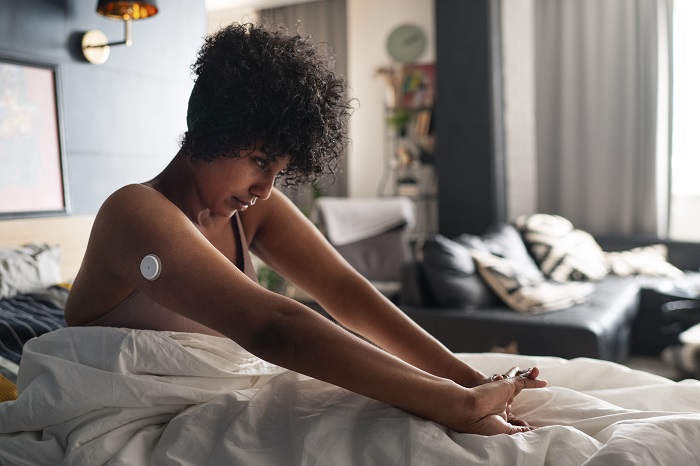In today’s digital and emotionally aware world, herpes is no longer the silent barrier to love that it once was. With better awareness, treatment, and support communities, dating someone without herpes doesn’t have to be filled with fear or shame. Many people Living With Herpes are forming meaningful and committed relationships, often with partners who do not share their diagnosis.
Despite progress, dating a partner without herpes does come with emotional challenges. You might be afraid of rejection, worried about transmitting the virus, or anxious about how and when to disclose your status. These fears are valid—but they are also manageable with the right mindset, support, and honesty. When approached with care, dating with herpes can lead to deeply respectful and long-lasting relationships.
Disclosure: When and How to Share Your Status
Telling someone you have herpes can feel overwhelming. But this moment of truth is also where your relationship starts to deepen. The timing matters—early enough so the other person has the right to make an informed choice, but not so soon that you haven’t built any trust or comfort.
Choose a quiet, private setting where you both feel safe. Be direct but gentle. You don’t have to go into medical details—just enough to show that you’re informed, responsible, and respectful. For example: “Before we get too far, I want to share something important about my health. I have herpes. I take steps to manage it and prevent transmission, and I’d be happy to talk more about it if you’re comfortable.”
Honest conversations often lead to deeper emotional intimacy. Your courage in disclosing might inspire your partner to open up about their own vulnerabilities. Remember: disclosure isn’t about shame—it’s about trust.
Education Builds Empathy: Helping Your Partner Understand Herpes
One of the most powerful tools you have in dating someone without herpes is education. Many people still have outdated or inaccurate information about herpes, associating it with promiscuity or assuming it’s rare. In fact, the HSV virus is incredibly common, and many people carry it without knowing.
Share reliable sources like the CDC, Mayo Clinic, or support forums such as PositiveSingles. Help your partner understand what transmission risks look like, especially with suppressive therapy and condom use. Let them know that HSV doesn’t define who you are—and that people with herpes can still have healthy, fulfilling, and loving relationships.
Helping your partner learn more about herpes can also reduce their anxiety. Many partners come to realize that the risk is manageable and doesn’t outweigh the connection they feel with you.
Boundaries and Consent: Letting Love Bloom with Respect
When you’re dating a partner who doesn’t have herpes, discussions around physical intimacy require mutual understanding and respect. Consent and communication become the foundation of your relationship. Both partners need to feel safe—not just physically, but emotionally.
Set clear boundaries and be honest about what feels right to you. Talk about what intimacy means, when you both feel ready, and how to incorporate protection. Suppressive antiviral medication and condom use can significantly reduce transmission risk. Be transparent, but don’t let herpes dominate the conversation—let love have room to breathe.
Dating with herpes means embracing honest love. The goal isn’t just about avoiding transmission—it’s about forming a connection rooted in choice, clarity, and respect.
Managing Rejection Without Losing Self-Worth
One of the hardest realities of dating with herpes is facing rejection after disclosure. It hurts—and it’s okay to grieve it. But it’s also important to remember that rejection is not always about you. Sometimes, it’s about fear, misinformation, or a person’s own readiness for commitment.
Don’t internalize rejection as a reflection of your value. Instead, see it as a filter—someone who cannot accept your vulnerability isn’t the right partner for your journey. The right person will meet your honesty with empathy, and your condition will become just one small part of your story—not a dealbreaker.
Focus on healing, community, and self-affirmation. There are many people—especially within platforms like PositiveSingles—who understand the challenges of herpes dating and are ready to build honest love.
Strengthening Emotional Connection Without Rushing Sex
While many relationships rush toward physical intimacy, herpes often encourages couples to take a more emotionally grounded route. This isn’t a setback—it’s a blessing in disguise. With more time spent talking, bonding, and building trust, you establish a firmer emotional foundation.
Take advantage of this slower pace. Explore your compatibility beyond the physical—your values, interests, goals, and life views. Dating with herpes often fosters deeper vulnerability, which leads to deeper love. You’ll find that when emotional safety is established, physical intimacy becomes even more meaningful.
Let your partner see the real you—beyond herpes. Let your heart guide the rhythm of the relationship, not fear.
Honest Love Means Mutual Responsibility
Dating someone without herpes doesn’t mean you carry all the weight. A healthy relationship involves both people learning, adapting, and caring for each other’s wellbeing. Mutual responsibility might include having open conversations about STI testing, deciding on birth control or condom use together, or checking in on emotional comfort.
Encourage your partner to ask questions. Let them know it’s okay to be unsure, and that you’re open to talking things through. When your partner feels included in the journey—not just “informed” about it—they’re more likely to commit with confidence.
This balance reinforces that herpes is just one aspect of your relationship—not the whole relationship.
Protecting Physical Intimacy While Keeping It Exciting
Herpes doesn’t mean your sex life has to be boring or full of worry. In fact, many couples find ways to keep things adventurous while staying safe. Talk about protection, boundaries during outbreaks, and how to recognize symptoms. Once those ground rules are set, you can explore physical intimacy freely.
Suppression therapy and proper protection reduce risk to near-zero. But communication also plays a huge role. Check in with each other often: “Do you feel comfortable today?” or “Is there anything you’d like to try differently?”
Being open keeps things exciting. You and your partner get to create a sex life that is fun, respectful, and deeply connected—built not on fear, but on trust.
Dealing with Myths and Social Stigma Together
Unfortunately, even though millions live with herpes, stigma still surrounds the topic. This can affect how your partner views your relationship, especially if they feel judged by friends or family. That’s why it’s important to present a united front—honest love thrives when you support each other.
Talk openly about how to handle outside opinions. You don’t have to disclose your diagnosis to everyone, but if you do, decide together how to frame the story. Remind each other that stigma is rooted in ignorance, not truth.
Your strength as a couple will grow when you learn to rise above societal bias together.
Dating With High Value Men or Women: Confidence Counts
Whether you’re a high-value man or woman, confidence and integrity make all the difference. High-value people appreciate transparency, emotional depth, and resilience. Owning your diagnosis with pride, being open about your boundaries, and showing compassion for yourself are attractive traits.
If you’re dating with herpes and aiming for a high-quality partner, let your honesty shine. You’re offering more than just facts—you’re offering trust, loyalty, and emotional maturity. That’s something truly rare and deeply attractive in today’s dating world.
Dating with high-value men or women isn’t about perfection—it’s about connection and mutual respect. Herpes won’t disqualify you; it will just refine your search.
Online Dating and Apps: Safe Spaces for Honest Love
In the modern era, online dating apps tailored for people with STDs like PositiveSingles have changed the game. These platforms offer safe, stigma-free environments where honesty is the norm and vulnerability is met with compassion. If you’re looking for someone who understands your journey, this is a great place to start.
But even if you choose mainstream apps, you can still thrive. Focus on creating a strong profile, building emotional rapport, and choosing the right moment to disclose. More people than you think are open to dating someone with herpes—especially when you lead with confidence and clarity.
Online dating can be the bridge to finding someone who sees your worth beyond any label.
Tips to Build a Loving Relationship Without Fear
- Prioritize communication – Talk often, talk openly, and talk with compassion.
- Set boundaries together – Respect for each other’s physical and emotional limits creates trust.
- Keep educating – Replace myths with facts and build comfort through knowledge.
- Celebrate love beyond the physical – Emotional connection is your superpower.
- Be patient – Relationships evolve. Let love grow naturally.
- Join support networks – You’re not alone; communities like MPWH or PositiveSingles offer guidance and friendship.
When you remove fear and insert trust, you create space for love to thrive—even in the presence of a virus.
Final Thoughts: Love Without Labels
Dating someone without herpes while Living With HSV doesn’t have to be a painful or fearful experience. It’s a journey of honesty, courage, mutual respect, and growth. Whether you’re newly diagnosed or have lived with herpes for years, you have the right to seek love, intimacy, and joy—just like anyone else.
Honest love is not about perfection—it’s about being real. It’s about looking someone in the eye and saying, “This is me. I trust you with my truth.” And when they look back and say, “Thank you for trusting me,”—that’s where true love begins.



